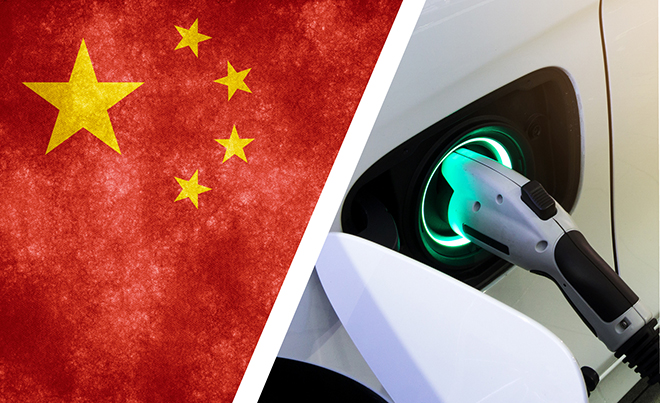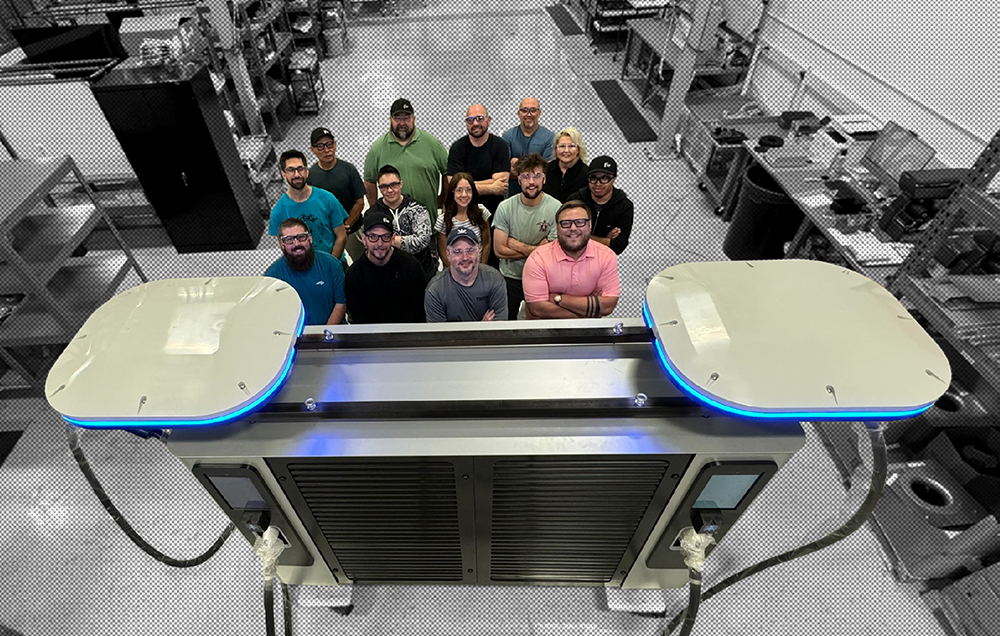Jeremiads lamenting China’s takeover of the global auto industry are everywhere these days. Three recent accounts stand out from the pack. These articles cover three different aspects of the tragic tale, but all are authoritative, fact-filled pieces written by journalists with first-hand knowledge of what’s going on in the Middle Kingdom, and I recommend that you read all three (and weep). Each reaches basically the same conclusion: the global non-Chinese automakers will never be able to catch up unless they radically change their corporate mindsets.
Car Wars
Han Feizi, writing in Asia Times, offers a colorful assessment of the current EV scene in China, which he compares to the notorious Japanese “motorcycle wars.” In the 1950s, over 100 companies in Japan started making motorcycles, sparking a “wild, untamed, often unscrupulous and dazzlingly innovative” melee. When it was over, all the British and Italian motorcycle brands were wiped out, leaving the field to one US brand—Harley Davidson—and four Japanese brands—Honda, Kawasaki, Suzuki and Yamaha.
Han writes that a similar free-for-all is now going on in China’s EV industry: “China’s car market is the largest in the world (twice the size of the US) and gladiators from all corners of the world have come to fight it out in an epic battle royale.”
He offers thumbnail assessments of selected brands and their strategies:
- BYD—unbridled expansion
- NIO—battery swapping
- Xiaomi—expertise manufacturing mobile phones can be carried over to EVs
- Huawei—digital architecture
- Geely—acquisitions of troubled automakers from all over the world (Volvo, Polestar, Lotus, Smart, London Taxi, Proton, Aston Martin)
- Tesla—manufacturing in China to export to the rest of the world
As for the legacy carmakers, they’re either:
- Getting their ducks in a row—Volkswagen, BMW, Mercedes
- Up a creek without a paddle—Nissan and Honda
- Sticking their heads in the sand—Toyota, which insists that pure EVs will top out at 30% of global car sales (it has already hit 50% in China)
As for GM, Ford and the US half of Stellantis, Han invokes Winston Churchill’s observation that “Americans can always be trusted to do the right thing, once all other possibilities have been exhausted.” After decades of fighting tooth and nail against electrification, the US brands have dug themselves a deep hole, and to climb out, they’ll need to “engage with the changing world or be left behind. Retreating behind tariff walls or outright bans will further isolate America’s auto industry into a Galapagos market of ridiculous trucks sold at nosebleed prices.”
Bad news from Beijing
Kevin Williams, writing in InsideEVs, shares his impressions from a week at the Beijing Auto Show. As he sees it, the prevailing narrative in the West is that China’s advances in EV manufacturing are somehow illegitimate, the products of a government that has unfairly subsidized its auto industry while forcing its citizens to buy its domestic products.
While there’s no question that China has put its governmental finger on the scale to turbocharge EV production, the real story is more nuanced than a simplistic us-vs-them narrative. “Western automakers are cooked. And a lot of this is probably their damn fault,” Williams writes.
He explains how various Western automakers (Volkswagen, Nissan, GM) made promising starts in the Chinese market, but dropped the ball by failing to offer compelling EVs in the desired segments at competitive prices. Foreign brands gradually lost the cachet they once had with Chinese consumers. At the Beijing show, locals were flocking to see new EVs from domestic brands, and paying little attention to the limited EV offerings from overseas automakers.
“At what point does blame shift from Chinese economic policy to the actions of the automakers themselves?” Williams asks. “Why the hell didn’t we subsidize our EV-building and clean energy industries like China did?”
Yes, China’s excessive EV production capacity is a serious concern, and so are the country’s human rights record and its sourcing of raw materials, but the existential problem for global automakers is that China is building “technologically advanced, well-made, interesting EVs. Deep down, all of the Western auto executives…understand that Chinese EV and PHEV models are more compelling than what European, other Asian, and American brands have come up with.”
Western auto brands, made in China
Global automakers may be failing at selling cars to Chinese buyers, but they’re seeing spectacular success building cars in China and exporting them, sometimes to their own home markets. Total Chinese car exports grew from 1 million in 2020 to 5 million in 2023.
Michael Dunne, a long-time watcher of the Chinese automotive industry, writing in Dunne Insights, asks us to imagine “a world in which China builds every single car.” Hard to imagine? Well, consider that China today has enough capacity to manufacture half of the world’s 80 million vehicles, and that volume is growing.
According to Global Data, this year China will export 6 million vehicles to more than 140 countries. By no means all these exports are from Chinese brands. It’s also important to note that a lot of these cars are gas-burners, not EVs.
- Tesla shipped 344,000 China-built cars to Canada, Australia, Europe and other markets last year.
- GM sends tens of thousands of made-in-China Chevys to Mexico and other markets.
- Ford has exported more than 100,000 trucks and SUVs from China to Southeast Asia, Africa and the Middle East, and exports the Lincoln Nautilus to the US.
- Stellantis invested $1.7 billion in Leapmotor last year to build vehicles for export.
- Volkswagen, Renault and BMW export “huge numbers” of made-in-China EVs to Europe.
- Hyundai and Kia will soon begin selling made-in-China cars in Korea and other markets.
- Mercedes exports the Smart brand from China to European markets, including Germany.
- Honda and Nissan will soon start exporting made-in-China vehicles, including to their home market.
“As a native of Detroit, it is hard to watch the Detroit 3 commit such massive, self-inflicted damage,” writes Michael Dunne.
An executive at a major US parts supplier asked Dunne: “Will Western nations have a renaissance of manufacturing innovation at home? Or will we watch our auto companies turn into just logos on vehicles built in China?”
Sources: Asia Times, InsideEVs, Dunne Insights



